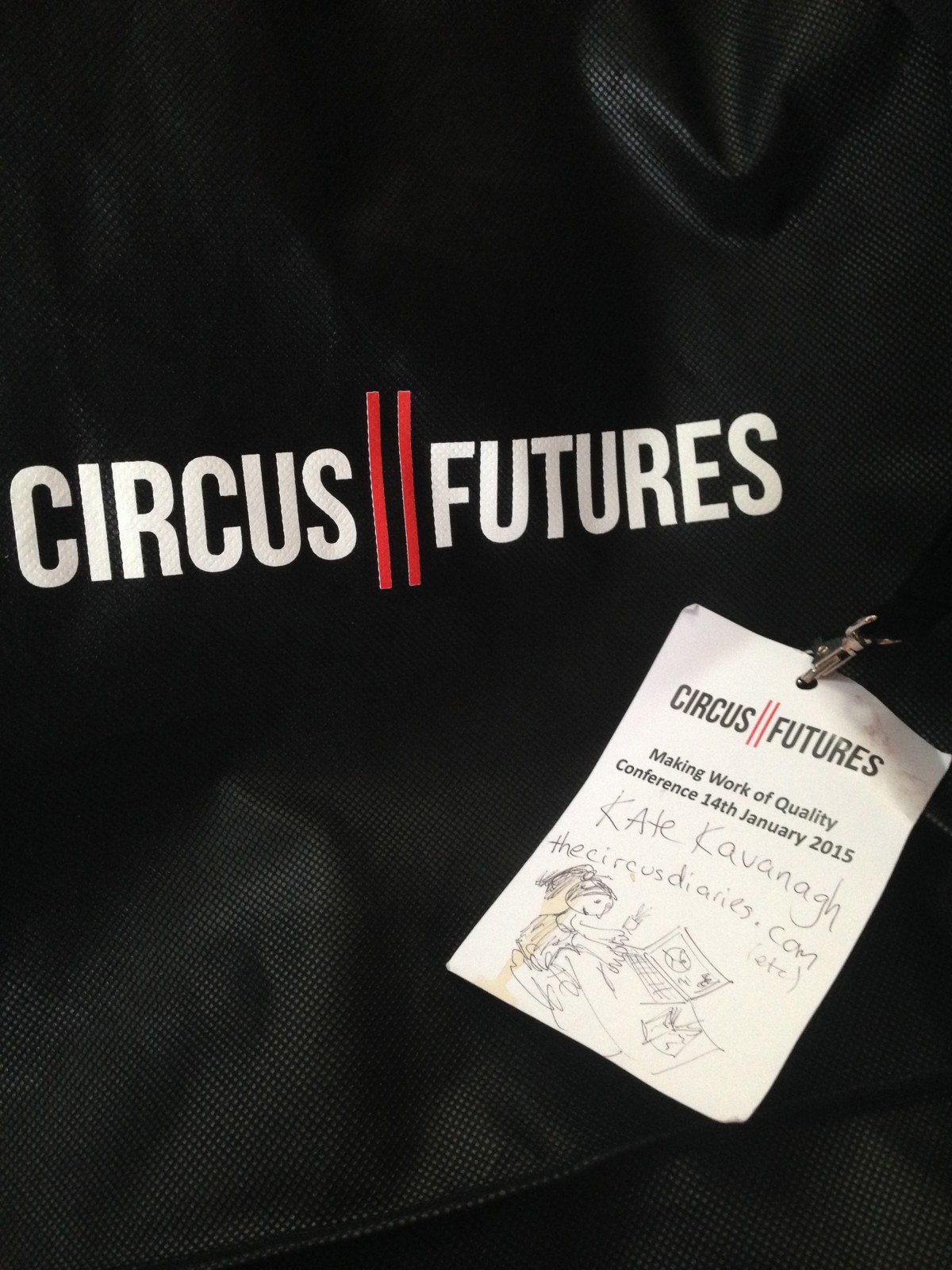
Last month the National Theatre played host to some of the movers and shakers working within various facets of the UK circus industry. The one day Circus Futures conference, exploring what it takes to make ‘work of quality’, was organised as part of the European CircusNext project, which works to support the latest generation of circus authors.
Introduced with the recognition that we have a better connected structure now in the UK than ever before, but still with considerable room for improvement, the day of panel discussions and tea-break chats was expertly facilitated by Orit Aziz, who produces large scale outdoor performance, including several past productions for NoFit State. The formality of the National Theatre’s studio space venue was neutralised by plain speaking, a down-to-earth vibe, and a welcome silliness to break the ice.
 Speakers included performers, producers, event organisers and representatives of venues and support agencies, and a summary of the day can be found through this Storify link.
Speakers included performers, producers, event organisers and representatives of venues and support agencies, and a summary of the day can be found through this Storify link.
The conversation flowed thick and fast, and there were many times when I felt a further day would be welcome to allow time for some of the threads to develop. Particularly interesting to me was the discussion on feedback, and ways in which this can be elicited, from peers and audiences. There was no space for me to launch into my feelings about circus criticism, and circus voices reaching out into mainstream media, but perhaps this is a future event to think about? Top theatre critic Lyn Gardner was one of the conference delegates, but no public comment was raised about media representation.
Over lunch, some questions came up about the difference between ‘critique’ as analysis, and ‘review’ as description. There is, of course, a need for both. Artists today can benefit from informed feedback on their work, but artists of the future will need a documentary record in order for the art to develop and diversify. Circus writing is also important to programmers and publicists, as well as to audiences looking for work they may know little about.

At the moment, I try to do a little of each with this website. Which is far from ideal. By trying to cater to everybody, I am watering down a more direct communication I could hold with any one group. More voices will allow more specific homes to grow for different groups of readers. And by ‘readers’, I also mean audiences for audio and visual critique methods. Over the course of this year, I am hoping to invite guest reviews from other interested circus folk, and to encourage more of you to engage and get your comment out there into the wide world! If you’d like to be involved, do get in touch!
What became clear from the conference was that circus artists value the idea of feedback, but while some are attempting different methods of obtaining these responses, very few seem confident in offering their own. Due to their technical expertise and immersion within the circus world, the people in attendance are some of the most well-placed in the country to offer critique on other work, so why is this not happening?

It’s been suggested that people attracted to circus may be uncomfortable with written communication. Although I don’t personally agree with this idea, the digital age offers plenty of alternatives for providing critical responses, and these should be explored. The difficulty as I see it, comes from one of the most vital elements of circus culture: the feel of community, of family. When I mentioned the notion of criticism as a career progression for older or injured performers, I was met with the response, ‘How badly do I want to tarnish my reputation?’. We need to ensure the culture surrounding circus criticism is an embracing one that recognises the value and necessity of dialogue, rather than one of estrangement and fear.
In a way, circus is lucky to be reaching this stage in its evolution at this time. Criticism in theatre has been talking about a ‘crisis’ of change for years and, rather than having to change ourselves, we are able to jump straight in to the current boom of critical modes.
Whatever you come up with next 🙂
Don’t be a stranger!
.





The unwillingness to engage in intelligent criticism is frustrating. I am used to that in the limited field of clowning, but I hadn’t actually realised the same was going on in the broader field of circus.
I actually felt that the honest speaking gradually lessened as the day went on at the conference. Things began provocatively and interestingly with Iona explaining how she as an artist doesn’t want people looking over her shoulder telling her how to make her art, but by the end of the day I felt we were just getting self-promotion dressed up as debates about means of gleaning feedback from audiences.
I think this was a good start, though, and big congratulations to the organisers.